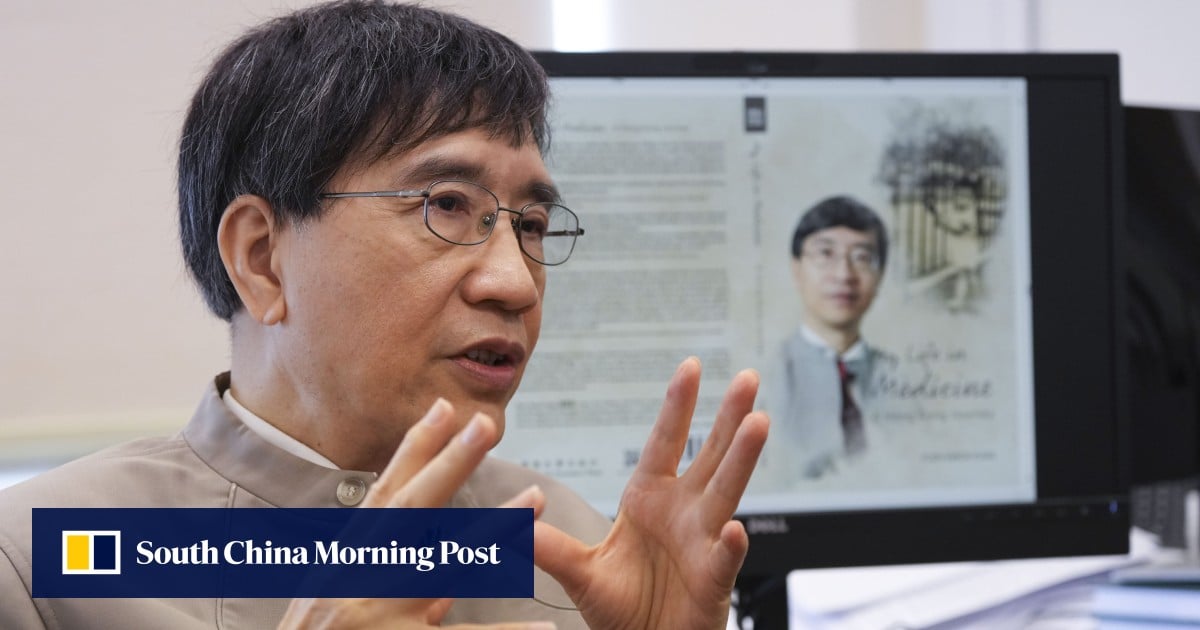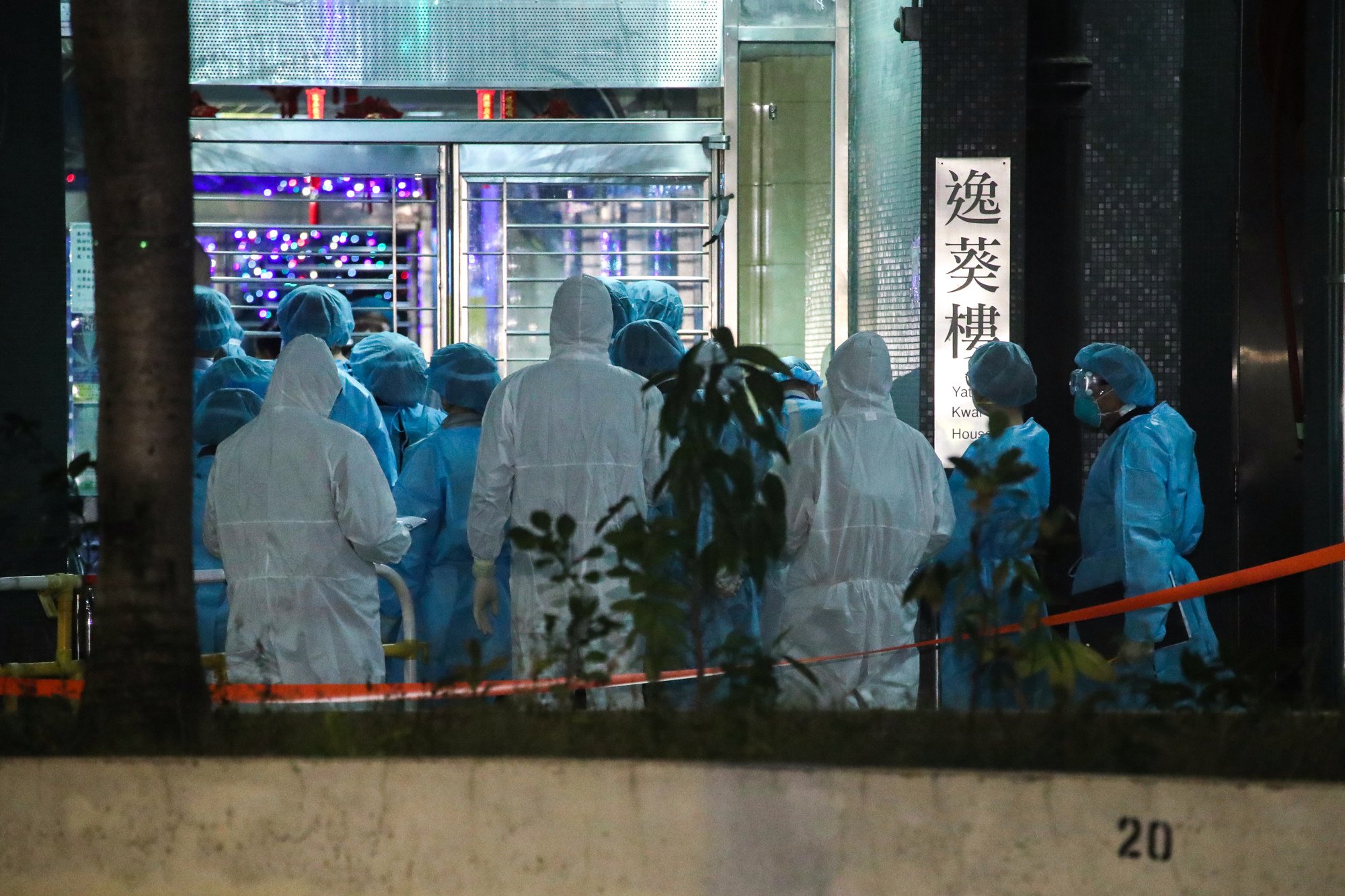
In 2020, British-Swedish pharmaceutical giant AstraZeneca was among the first three firms that the Hong Kong government established a procurement agreement with for Covid-19 vaccines.
Alongside the 7.5 million doses of vaccines authorities had ordered from AstraZeneca, another 7.5 million jabs were procured from mainland Chinese firm Sinovac, and the same amount from Fosun Pharma, which distributed the German-made BioNTech doses.
Yuen revealed in his book that there was opposition from the government’s advisory experts on the use of jabs from AstraZeneca over adverse effects reported.
Apart from side effect of transverse myelitis, an inflammation of part of the spinal cord, in a phase three trial for the vaccine, there were also overseas reports of clotting veins.
“The government ultimately decided against using AstraZeneca over safety concerns stemming from reports of deaths among young people due to thrombosis, or clotting of veins, in the brain and limbs,” Yuen wrote.
While Yuen acknowledged that the complication was rare and the benefits from the vaccine far outweighed the danger of Covid-19, he and other experts maintained their stance against using the jabs.
In October 2021, nearly eight months after the city’s Covid-19 vaccination programme began, the government announced that it was donating the 7.5 million doses of AstraZeneca vaccine to the Covax Facility, an international initiative backed by the United Nations to distribute jabs to developing countries.
But the government only said the donation was due to sufficient quantity of jabs from Sinovac and BioNTech, which could also continue to provide stable supplies of vaccines to the city, without citing safety concerns over the AstraZeneca jabs.
Earlier that year, health officials said they were concerned about the safety reports of the jab, and had asked the drug maker to pause their delivery, but they maintained adequate supplies as the main reason for the donation.
“Hong Kong people were very fortunate to have the luxury of an excess supply of different types of vaccines and the freedom to choose,” Yuen wrote.
The infectious disease expert also recalled his inspection at public housing block Yat Kwai House, Kwai Chung Estate, in January 2022 as “memorable”.
It was among some 30 inspections he did during the pandemic at various venues – such as restaurants, fitness clubs and residential buildings – where outbreaks were reported.
Yuen and officers from the Centre for Health Protection deemed that all residents of Yat Kwai House should be subject to home quarantine following their on-site investigation, as more people became infected and the virus started to spread.

The next day following the inspection, the government initially only required residents to undergo compulsory testing for three consecutive days, as “government agencies were not ready to provide support and services for home quarantine”, Yuen wrote.
But officials changed stance later that same day and imposed a five-day lockdown, in which residents were subject to daily testing.
On a separate note, Yuen also revealed how he had faced “the most threatening” event in his career in 2021, when an anonymous complaint against him was made to the Medical Council, a watchdog that determines whether a doctor is fit for practice.
The complaint against Yuen was centred on his interview with a foreign media outlet in which he was accused of being “defamatory, unethical and unprofessional” for allegedly implying that “the Chinese government had deliberately covered up the Covid-19 outbreak”.
The accusation also stated Yuen should not use the term “crime scene” to describe a Wuhan market, which was believed to be the source of the outbreak.
The council eventually decided not to proceed with the matter, a few months after Yuen submitted his response towards the complaint.
Yuen had previously said that he would speak out on something that should be raised, and that was also reflected in his response to the council, which was also included in the book.
“I always hold the belief that speaking the truth will benefit society in the present and future control of disease outbreaks,” he wrote in the letter.


![[VIRTUAL] PEN Out Loud x Asian American Writers’ Workshop: Julie Otsuka with Nicole Chung [VIRTUAL] PEN Out Loud x Asian American Writers’ Workshop: Julie Otsuka with Nicole Chung](https://www.todaysauthormagazine.com/wp-content/uploads/2024/05/1716470956_pen-out-loud-2022-julie-otsuka-120x86.png)



